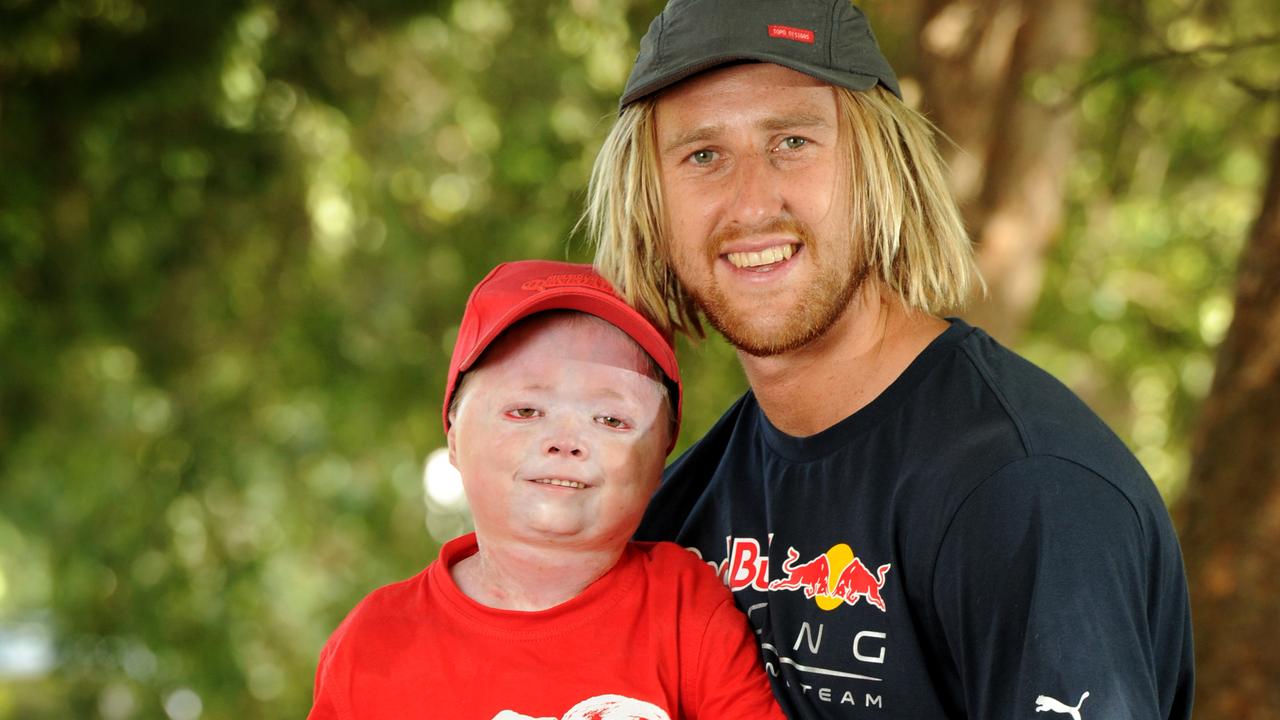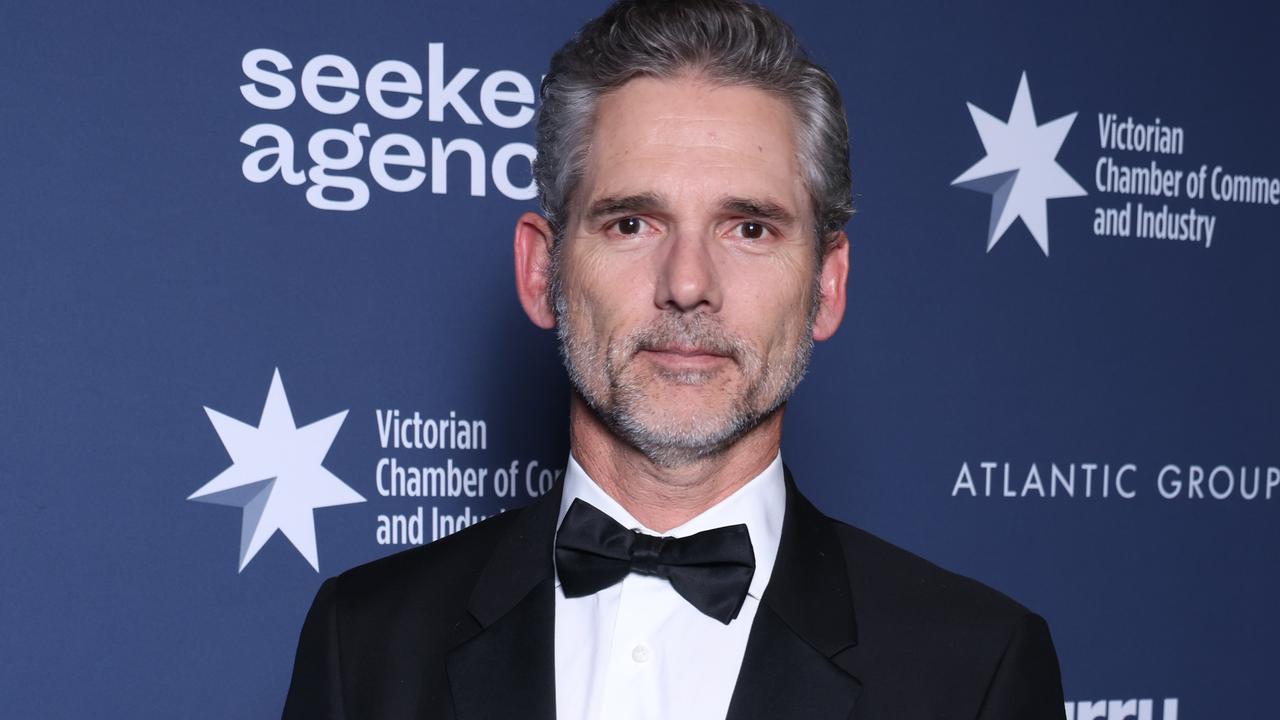Young guns: Melbourne entrepreneurs making millions doing what they love
Unafraid of hard work and risk, these young Aussie entrepreneurs have ‘had a crack’ at turning their business dreams into reality, and are rocketing up the rich lists.

News
Don't miss out on the headlines from News. Followed categories will be added to My News.
A new generation of Melbourne young guns is shooting up Australia’s rich list; ready to fill the shoes of famed Aussie entrepreneur Ruslan Kogan.
While their businesses range from 3D rendering software to mattresses and skincare, the youthful entrepreneurs have all identified a problem or market niche and then attacked it with innovation, flair, determination and hard work.
And they’re making millions, doing what they love.
Here are some of the state’s best and brightest young entrepreneurs who have used Melbourne as a launching pad to blaze a path across the nation’s business scene, grabbing international attention and investment dollars in the process.
Melbourne’s Ruslan Kogan, founder and CEO of Kogan.com - as well as several other Australian e-commerce companies - was Australia’s richest person aged under 30 from 2011 to his 30th birthday in November 2012. He is now 38.
Sam and Ryan Kroonenburg: A Cloud Guru
Timing is everything, particularly in tech.
Brothers Sam and Ryan Kroonenburg built a $2 billion business in five years, helped in no small part by the massive switch to remote working sparked by the coronavirus pandemic.
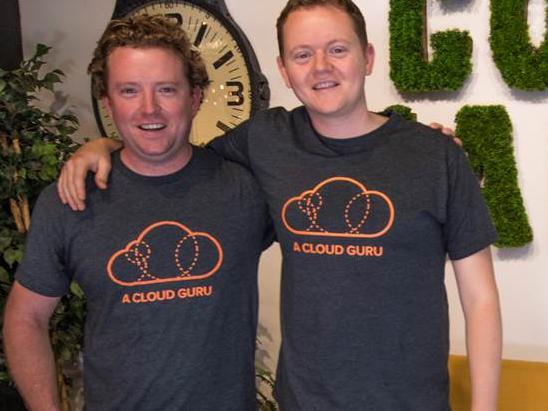
A Cloud Guru has provided more than 2.2 million people with online training courses in cloud computing platforms such as Amazon Web Services, Microsoft Azure and Google Cloud.
Those skills, if you hadn’t noticed, have been in major demand of late.
In a twist of fate, the brothers launched the business in Melbourne and London in 2015 after Ryan was rejected for a job at Amazon Web Services.
US online education provider Pluralsight last month closed a deal to buy A Cloud Guru for $2bn.
Speaking to the Herald Sun, Sam Kroonenburg said budding entrepreneurs should always remember that successful companies were not built by one person.
“Start-up culture loves to focus on the founder, but I cannot overstate the importance of the management team and contributors,” he said.
“Be plain spoken, be you. Lead by example and show your work ethic. Be humble and reward those who commit to your vision.”
The first version of A Cloud Guru’s software platform was built by Sam at his home in Melbourne’s southeastern suburbs.
He plunged into the business on the urging of his wife, who suggested he channel savings set aside for an overseas holiday into the venture.
Melbourne has been hard but by Covid but Mr Kroonenburg has no doubt the city remains an attractive base to launch a global business.
“There’s a lot of great tech talent in Melbourne and a hunger among that talent to work on exciting opportunities that have impact on a global scale,” he said.
“Businesses with a strong purpose, mission and an ambition for global impact can set themselves apart from the competition for talent and thrive in Melbourne.”
While Mr Kroonenburg’s enthusiasm for Melbourne remains unbroken, he cautions that the longer our international boarders stay closed the harder it becomes to attract the best talent from across the globe.
“Due to the Covid situation, with the borders closed and a stop on immigration, the competition for talent has become fierce,” he said.
“Until Australia’s vaccination program can catch up to other developed nations, businesses face a challenging environment for hiring and retaining talent.”
Winston Wijeyeratne and Selvam Sinnappan: Sleeping Duck
A poor experience buying a new mattress sparked a business which is now closing in on a $500 million stock market listing.
Melbourne engineering graduates Winston Wijeyeratne and Selvam Sinnappan founded mattress manufacturer and retailer Sleeping Duck in 2014 after Mr Wijeyeratne walked away less than impressed from a mattress shopping venture.
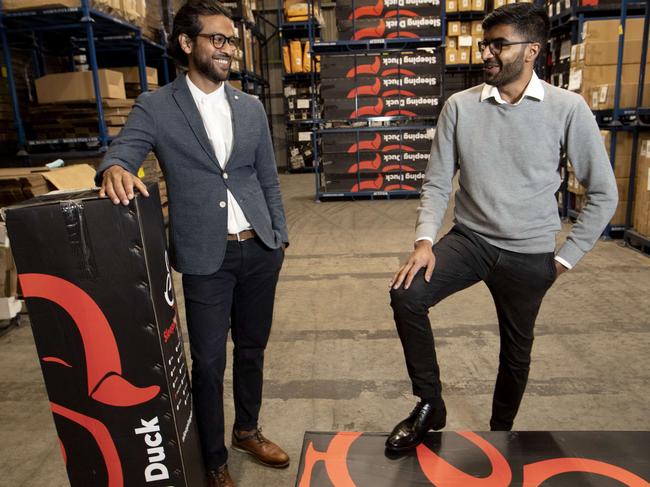
“The more we looked at the products and practices in the industry, we realised there was an opportunity to use our engineering and material science backgrounds to create a truly differentiated product,” Mr Wijeyeratne said.
Six years on, the pair - who meet on a graduate program with banking giant ANZ - have sold 100,000 mattresses and are eyeing a stock market listing which could value the company at half a billion dollars.
It’s a long way since turning down a $500,000 investment offer made on TV show Shark Tank in 2017, which valued the business at $3.3m.
Mr Wijeyeratne said all entrepreneurs made mistakes – although turning down the Shark Tank offer wasn’t one them – but the key was to always learn from them.
“Don’t be afraid to push boundaries and make mistakes,” he said.
“This is how you’ll get some of your best learnings, especially when you’re just starting out.”
Mr Wijeyeratne said the start-up landscape was coming along in leaps and bounds and the city provided entrepreneurs with plenty of opportunities.
“The start-up ecosystem here has grown and developed a lot compared to when we started Sleeping Duck in 2014,” he said.
“There’s now a very strong start-up community here which means there’s plenty of support and resources for founders, which is important and helpful when you’re starting out.”
Jess Hatzis and Bree Johnson: Frank Body
A side hustle for Melbourne duo Jess Hatzis and Bree Johnson has just become a $100 million business.
The university friends are part of a five person team, which launched coffee-based skincare brand Frank Body in 2013 with a combined savings pool of $5000.
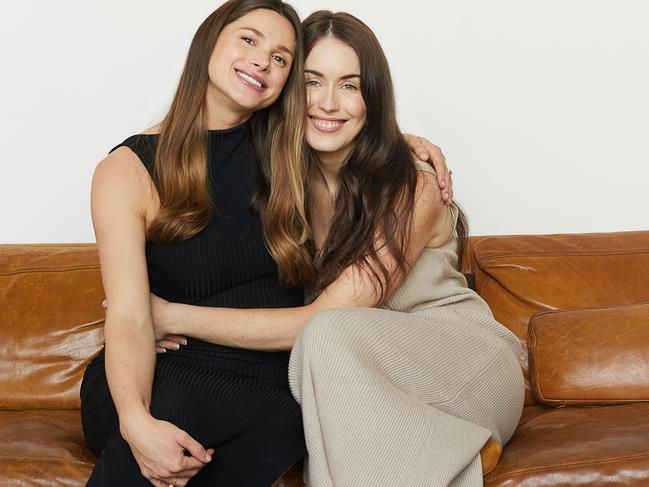
Chinese private equity firm EverYi Capita recently took a minority stake in the in-demand beauty business which values it at $100m.
Frank Body products are now sold in 156 countries at retail majors such as Mecca in Australia, Ulta Beauty in the US, Sephora in Europe and Boots in the UK.
Ms Hatzis and Ms Johnson are no strangers to business having founded the successful advertising agency Willow & Blake, known for its attention-catching communications for the like of Grill’d, Elle McPherson Body and Pana Chocolate.
The key advice for any new entrepreneur, Ms Hatzis said, has always been the same.
“No one will do it for you,” she said.
“If you really want this, be prepared to work harder than you ever have to make it a reality.”
She lists opening Frank Body offices in New York and London as key business highlights.
“It was confirmation that the business really is going global and something we had been working towards since day dot,” she said.
While sales have lifted during Covid as locked down customers focus on self care routines, Ms Hatzis said the pandemic had reinforced the need to not take anything for granted.
“Don’t get complacent,” she said.
“At the same time we need to be grateful for what we have. So many people lost their loved ones, savings and businesses through the pandemic and we were fortunate not to experience that.”
Josh Fegan: Althea Group
Melbourne local Josh Fegan used to install car stereos.
Today he runs one of the nation’s largest medical cannabis groups, Althea Group, which trades on the stock exchange with a value of around $85 million.

Mr Fegan, who has a 22 per cent stake in Althea, was introduced to the medical cannabis sector via a family member who worked in the area in the United States.
“A US-based mentor of mine had invested into the space and like many business trends I thought legal cannabis might be something which would expand beyond America,” he said.
“What really motivated me were all of the stories I read over the years about patients using black market cannabis to treat illnesses such as epilepsy, chronic pain, cancer pain, PTSD and anxiety. These stories were everywhere. A plant I knew very little about was improving quality of life for people in some horrible illnesses, yet it remained incredibly misunderstood.”
Mr Fegan, who grew up in Box Hill and studied business at La Trobe University, launched Althea in 2016 after the federal government greenlighted medicinal cannabis.
It sources cannabis from Canadian producer Aphria – a part owner of Althea – but has drawn up plans to build a growing facility at Skye in Melbourne’s southeastern suburbs.
It also has operations in the United Kingdom and Germany.
Fegan said the coronavirus pandemic had shown him that huge companies and great businesses could be brought to their knees by a health crisis.
“The silver lining? Health and technology are more important to the community and to businesses than ever before,” he said.
“We are a pharmaceutical business, so the former puts a spotlight on solving serious health problems in society which cannabis has the power to do when harnessed professionally and ethically.”
Zac Duff and Numa Bertron: JigSpace
Solve a problem.
All great businesses do and Melbourne-based JigSpace is no exception.
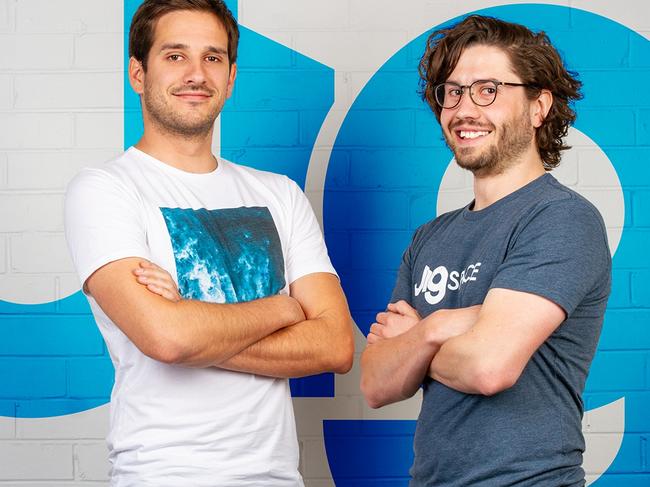
Co-founder Zac Duff became frustrated by the lack of 3D rendering tools available for presentations when teaching an online game development course at a Melbourne private college.
Fellow teacher Numa Bertron expressed a similar frustration and JigSpace was born.
The software allows users to create interactive 3D presentations, enhancing power-point slide presentations with augmented reality renderings of how any object looks.
Formally launched in 2017, it now has a staggering four million users and was highlighted by tech giant Apple during the launch of its iPhone 12 last year.
It also recently secured funding of $6 million from local technology investor Rampersand.
While what that values the overall company at remains a mystery, Rampersand managing partner Paul Naphtali was gushing in his praise for the start-up.
“We rarely see a company with JigSpace’s technical capability, growth trajectory and opportunity ahead of it,” he said.
Mr Duff, originally from Tasmania, said he had always wanted to build some kind of business and suggested “taste is more important that technique”.
“Go deep into things that pique your interest,” he said.
He also urged the nation to learn to code.
“A basic understanding of how to talk to the machines that underpin every part of the modern world is a critical skill,” he said.
Mr Bertron said while JigSpace was now attracting growing attention, entrepreneurs should have a more down-to-earth understanding of success.
“Don’t compare yourself to the very few extremely successful companies out there,” he said.
“If you’re having fun, you’ve already made it.”
john.dagge@news.com.au




